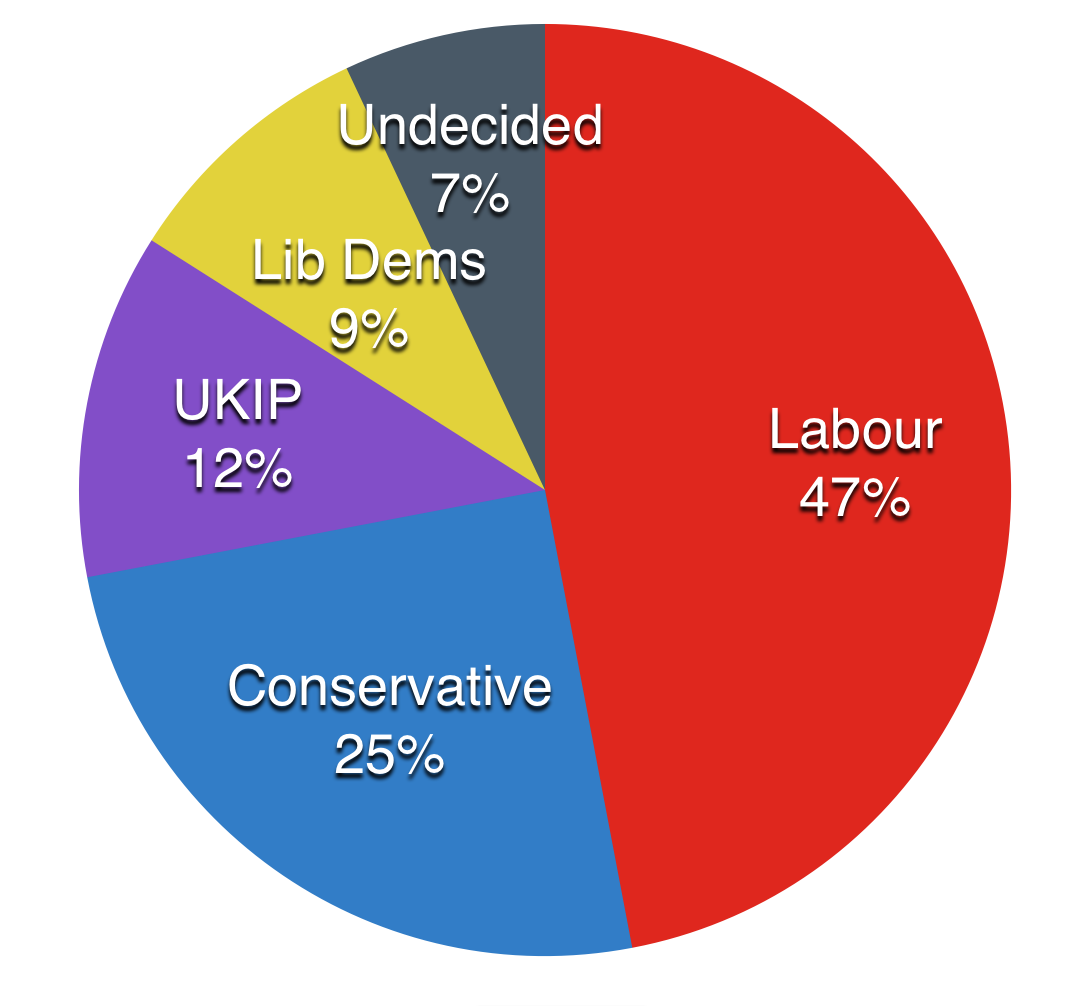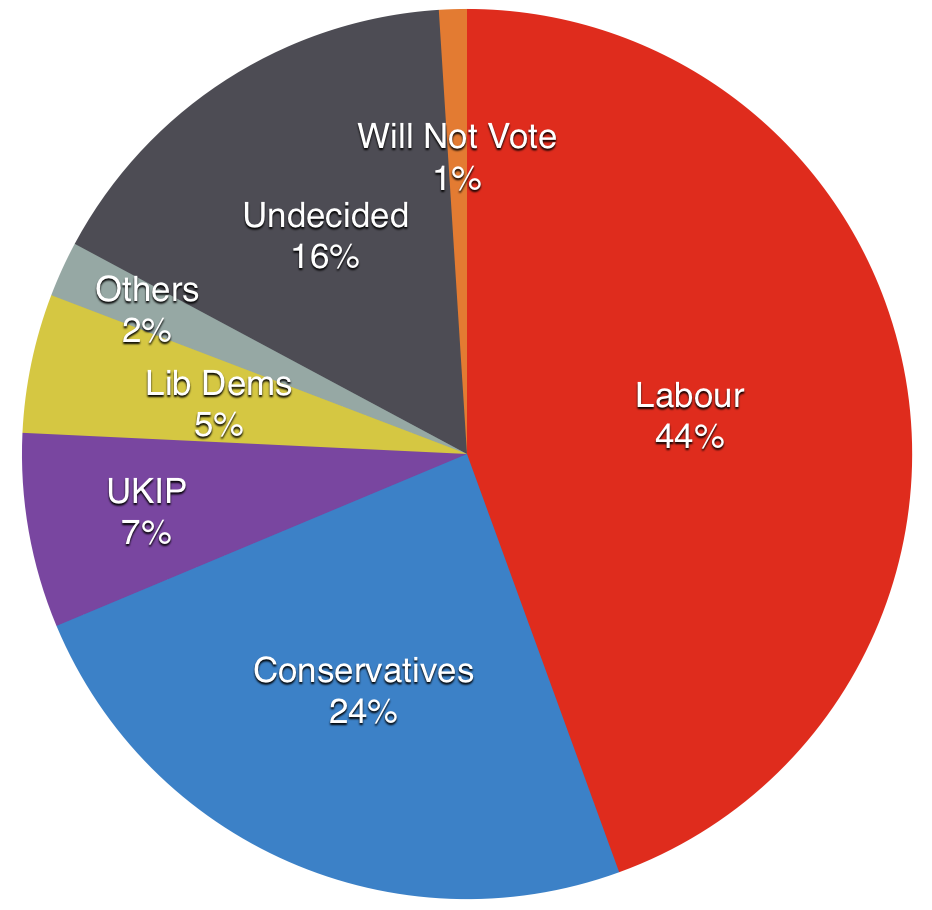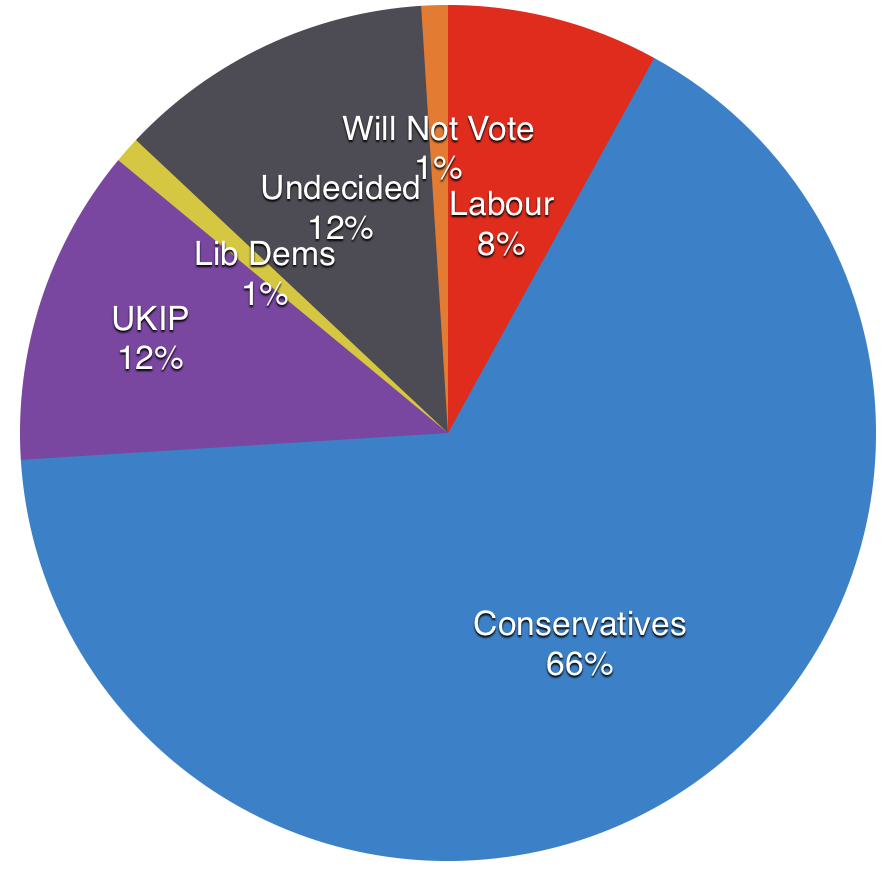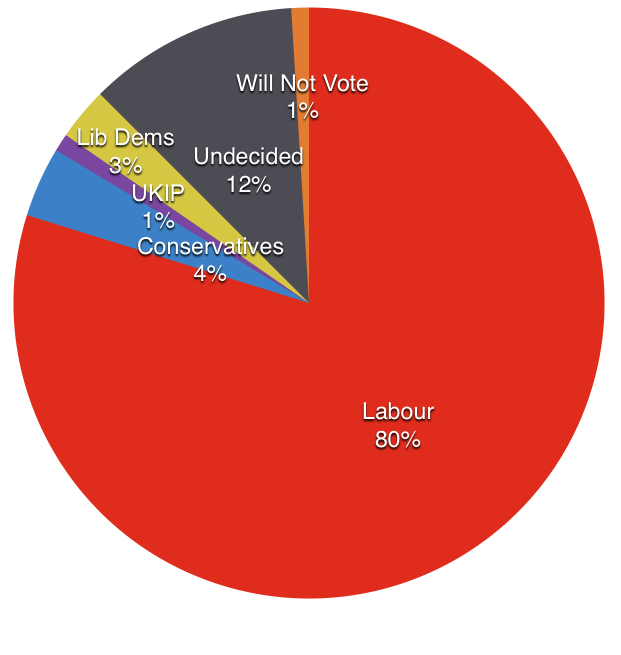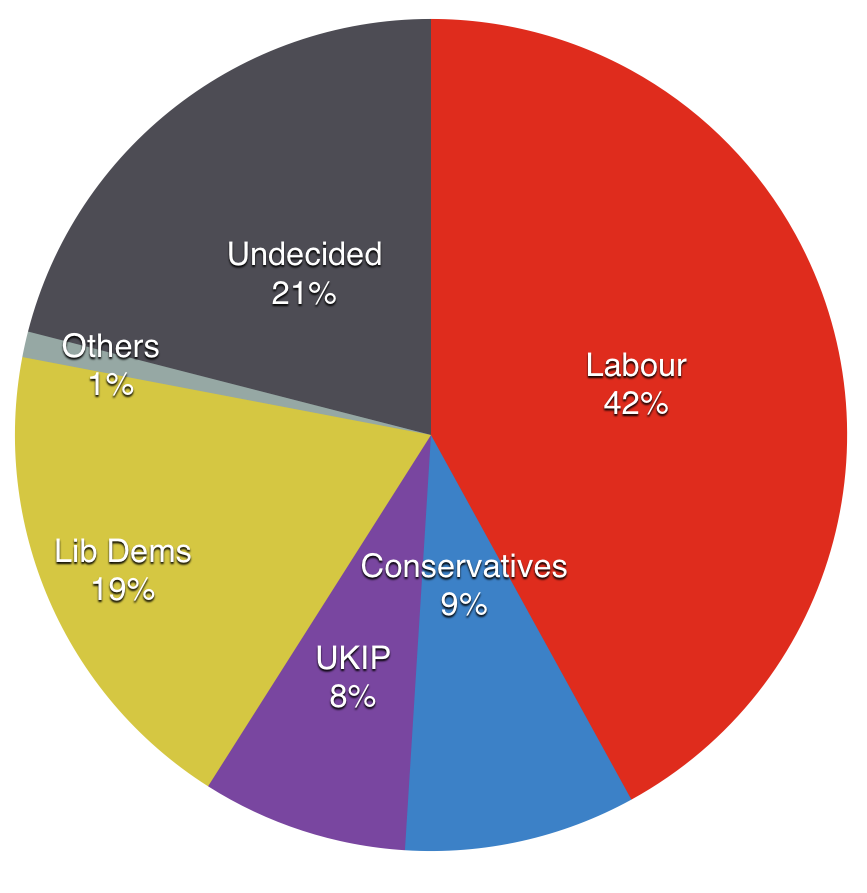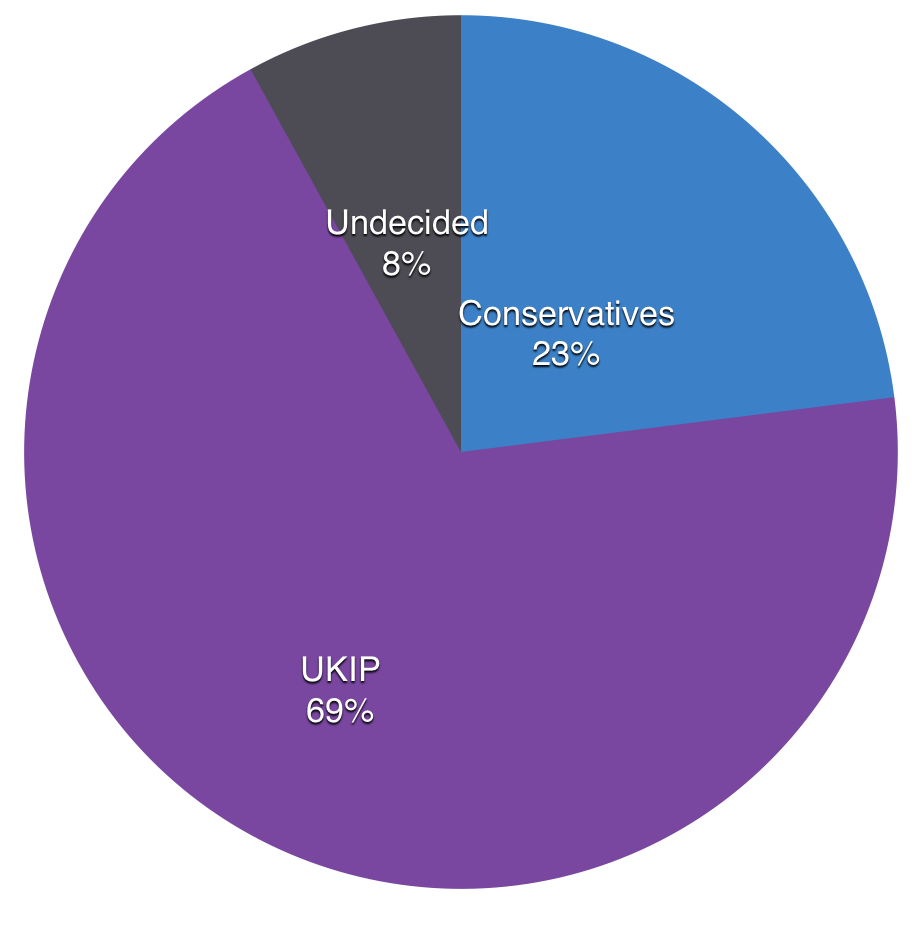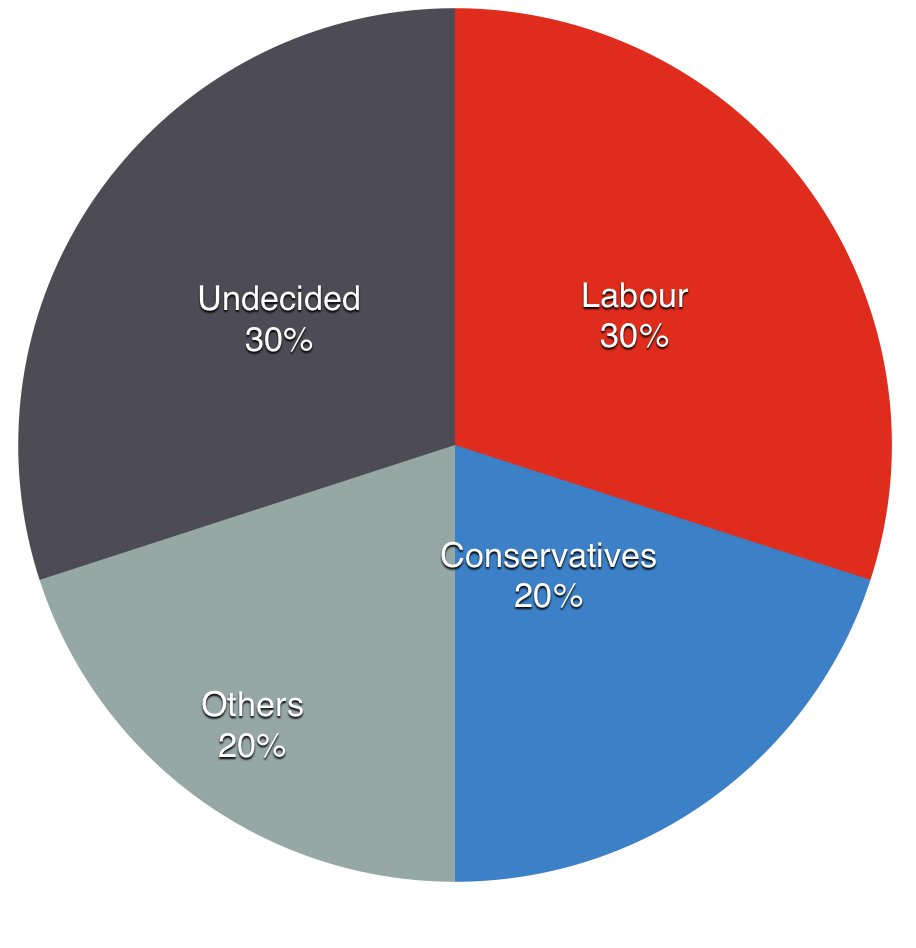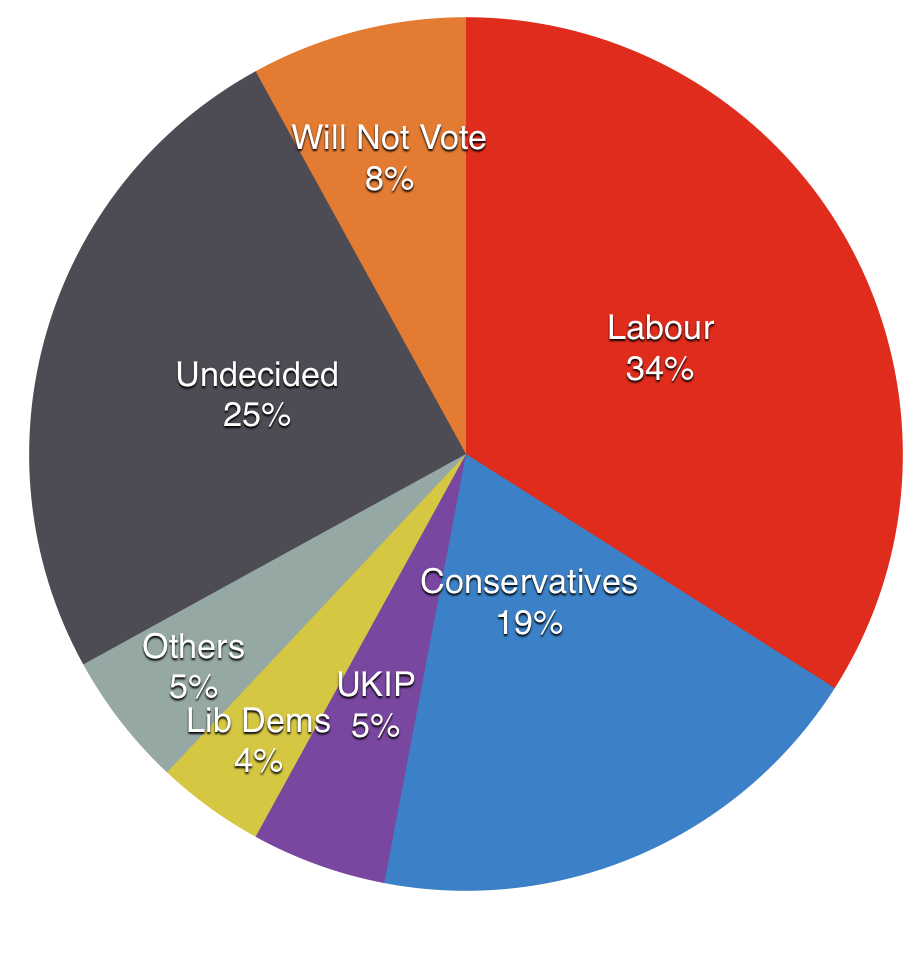Thanks again for your support and participating in the Big Election Survey this week – another 150 of you have taken part across the county! This takes the total number of people in the Lincoln constituency with completed surveys to just over 500.
The overall figures show the same trend as those reported in last week’s column, with Labour having an overwhelming lead among those who have taken part since the launch of the survey. However, with the election drawing closer, I thought it may be more appropriate this week to shorten the time frame for analysis.
Based on responses from the past two weeks (a total of around 150 completed responses from the city of Lincoln – this figure is likely to be higher, but many surveys were not completed in full), the potential split of the vote would indicate that Labour is gaining the highest level of support (47%), followed by the Conservatives in second (25%), and UKIP in third (12%).
To reiterate again, because of the nature of this survey, predictions about the outcome of the election cannot be made. These figures are purely a reflection of the voting intentions of those who have responded to the survey in Lincoln over the past two weeks.
Further in this column, I wanted to share some information about the ‘most important issues’, as considered by supporters of the different parties. Note that this data refers to all people who have responded to the survey (a sample size of around 500).
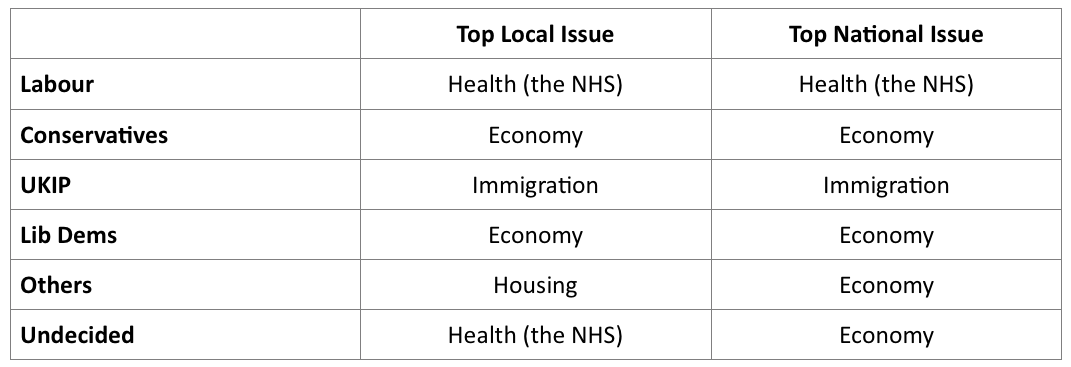
Table showing important local and national issues, as suggested by supporters of different parties in the survey.
As can be seen in the table above, there appear to be clear preferences for people who are sure about supporting specific parties in relation to the most pressing issues facing society. However, with those who are ‘Undecided’, there is a disconnect between local and national agendas.
Locally, those who stated that they were undecided about who to vote for looked more like Labour supporters, suggesting that the NHS is the most important political issue.
However, at the national level, these voters looked more like Conservatives or Liberal Democrats, with the economy being viewed as the most important issue. Which of these options to choose from is then probably dictated by a general political stance about the best, most effective, and fairest ways to address the issues at hand.
No doubt, the upcoming debate organised by The Lincolnite, Lincolnshire Echo and BBC Radio Lincolnshire on Monday 4th May will be a deciding factor for those still unsure who to vote for, with those candidates in attendance having one final chance to convince those watching and listening that they are the most appropriate representative for Lincoln in the next Parliament.
If you are still unsure, you can also use the Vote for Policies’ website, which allows you to choose your policy preferences before revealing which party they come from. The Lincolnite has previously reported early results from this survey, too.
We would encourage readers to share the survey as widely as possible in order to help us gain a better picture of how Lincoln feels going into the election. To have your voice heard in the survey, take part here and be in with a chance to win one of our weekly £25 Amazon voucher draws.
Remember to tune in to The Lincolnite on Monday night for the Lincoln Debate, live from the LPAC. It kicks off at 7.30pm, and a live blog will be running throughout.
Craig Harper is a lecturer in human psychology at Nottingham Trent University. His main interests examine how the news media represent a range of social groups, and how these reports impact on social and political discussions. Born and bred in Lincoln, he takes a keen interest in the local area, and is a big supporter of Lincoln City FC.



